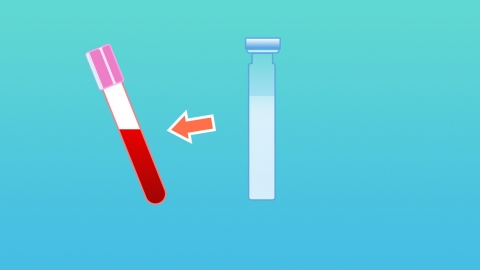How to lower alanine aminotransferase (ALT)
Generally, elevated alanine aminotransferase (ALT) levels may be caused by factors such as long-term late-night habits and fatigue, heavy alcohol consumption, non-alcoholic fatty liver disease, drug-induced liver injury, or viral hepatitis. It is recommended to seek timely medical consultation to identify the underlying cause and, under a doctor's guidance, lower ALT levels through lifestyle adjustments, medication, and other treatments. A detailed explanation is as follows:

1. Long-term late-night habits and fatigue: Prolonged late nights and excessive fatigue can increase the metabolic burden on the liver, leading to mild liver cell damage, elevated ALT levels, and symptoms such as fatigue and poor mental condition. Adjust your sleep schedule immediately, ensuring 7-8 hours of sleep per night, avoiding staying up past midnight, and reducing heavy physical labor and prolonged熬夜 (staying up late).
2. Liver damage from heavy alcohol consumption: Alcohol is primarily metabolized in the liver, and long-term heavy drinking can damage liver cells, causing elevated ALT levels and discomfort in the liver area. Stop drinking alcohol immediately, including any beverages containing alcohol. Maintain a light diet, consume more fresh fruits and vegetables rich in vitamins, and appropriately increase protein intake, such as lean meat and eggs, to aid liver cell repair.
3. Non-alcoholic fatty liver disease: Long-term high-fat diets and obesity can lead to fat accumulation in liver cells, damaging them and causing elevated ALT levels, often accompanied by being overweight. Patients should follow medical advice to use medications such as silymarin capsules, polyene phosphatidylcholine capsules, and diammonium glycyrrhizinate enteric-coated capsules to protect liver cells.
4. Drug-induced liver injury: Long-term use of medications such as acetaminophen and statins can lead to liver cell damage from drug metabolites, causing elevated ALT levels along with symptoms such as nausea and abdominal distension. Immediately discontinue or switch liver-damaging medications under a doctor's guidance, and follow medical advice to use drugs such as reduced glutathione tablets, compound glycyrrhizin tablets, and bicyclol tablets to repair liver cells.
5. Viral hepatitis: Hepatitis B virus infection of liver cells triggers an inflammatory response, causing elevated ALT levels accompanied by symptoms such as reduced appetite and jaundice. Patients should follow medical instructions to use antiviral medications such as entecavir tablets, tenofovir disoproxil fumarate tablets, and lamivudine tablets to inhibit viral replication.
In daily life, avoid spicy, high-fat, and high-sugar foods to reduce the metabolic burden on the liver. Maintain a regular routine, avoid emotional fluctuations, and have regular liver function checkups. Gradually lower ALT levels through lifestyle adjustments and standardized treatment to maintain liver health.







